
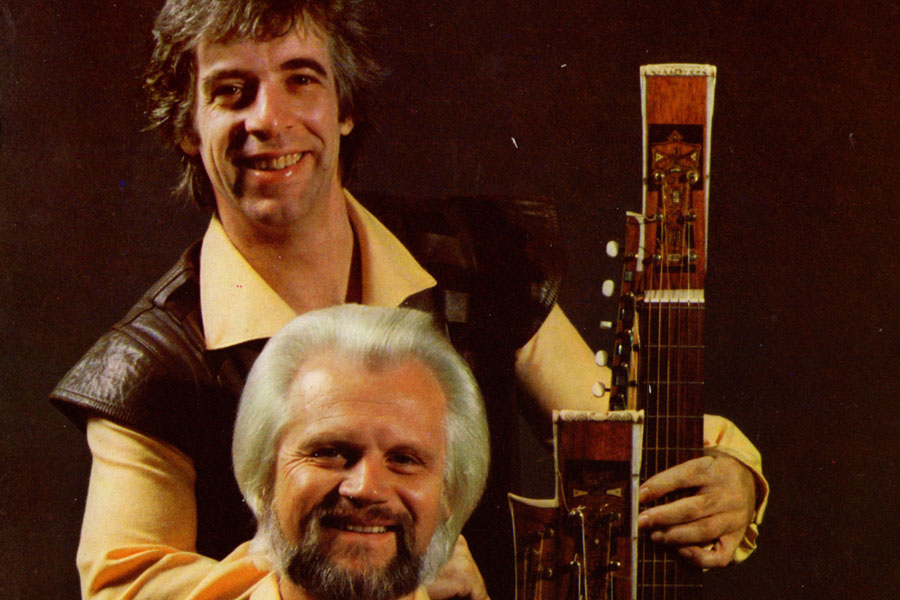
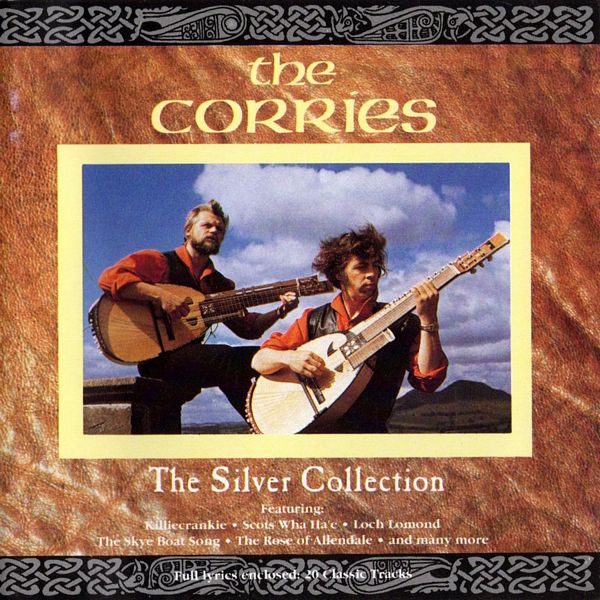 |
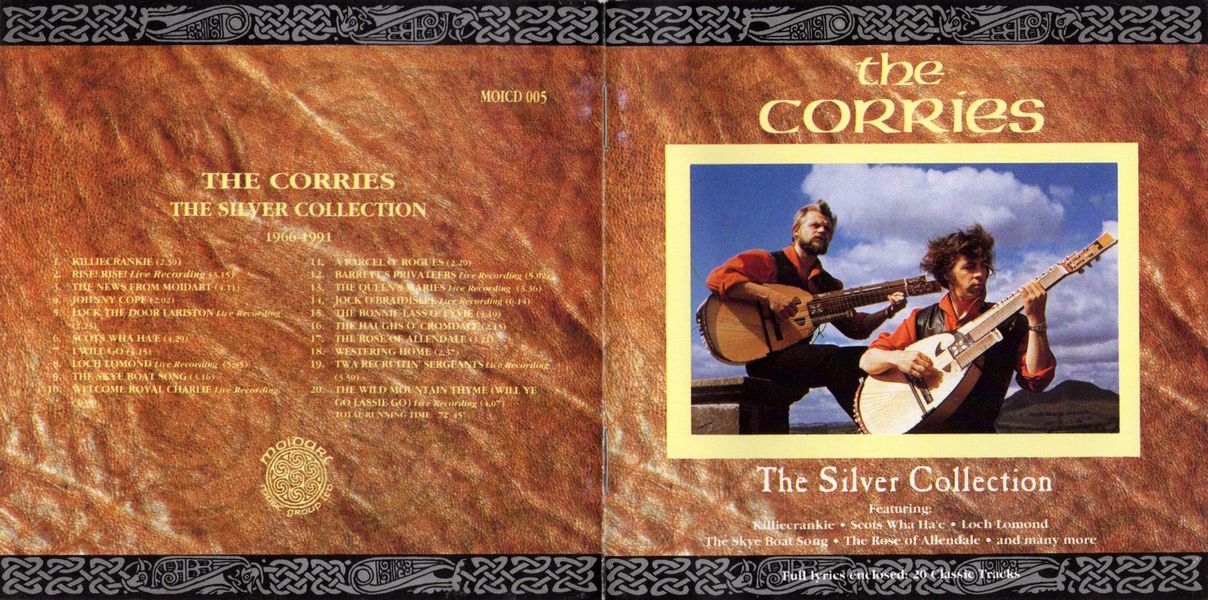
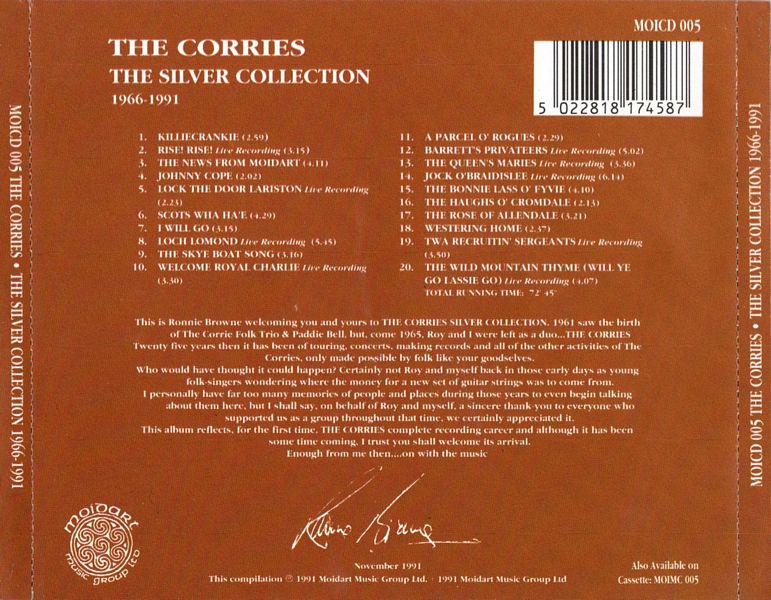 |
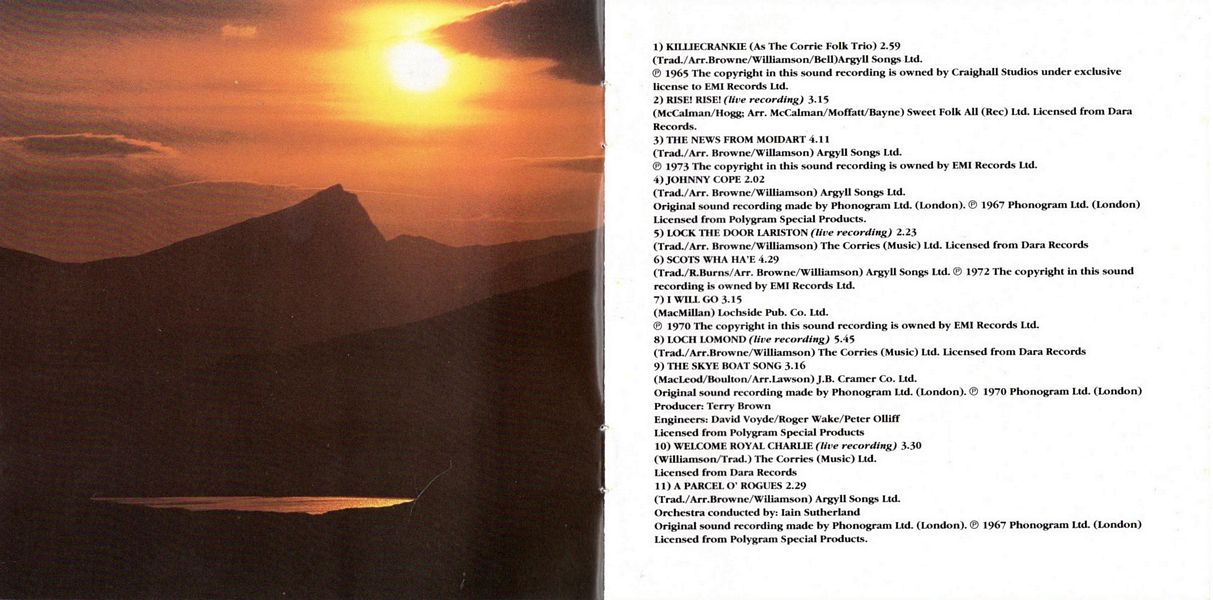
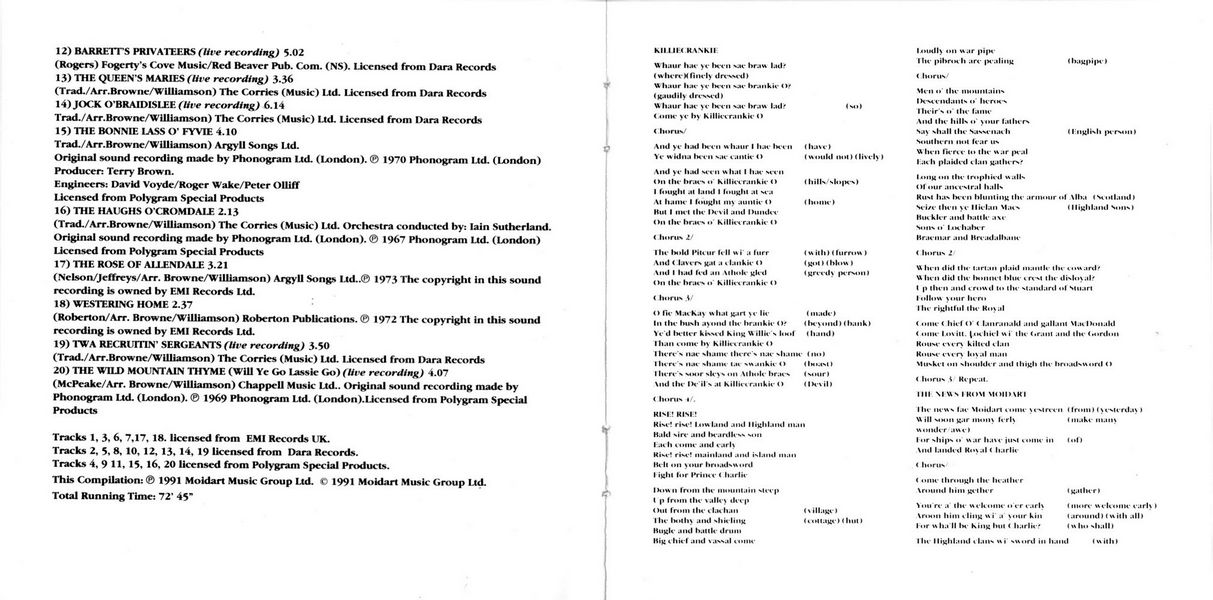 |
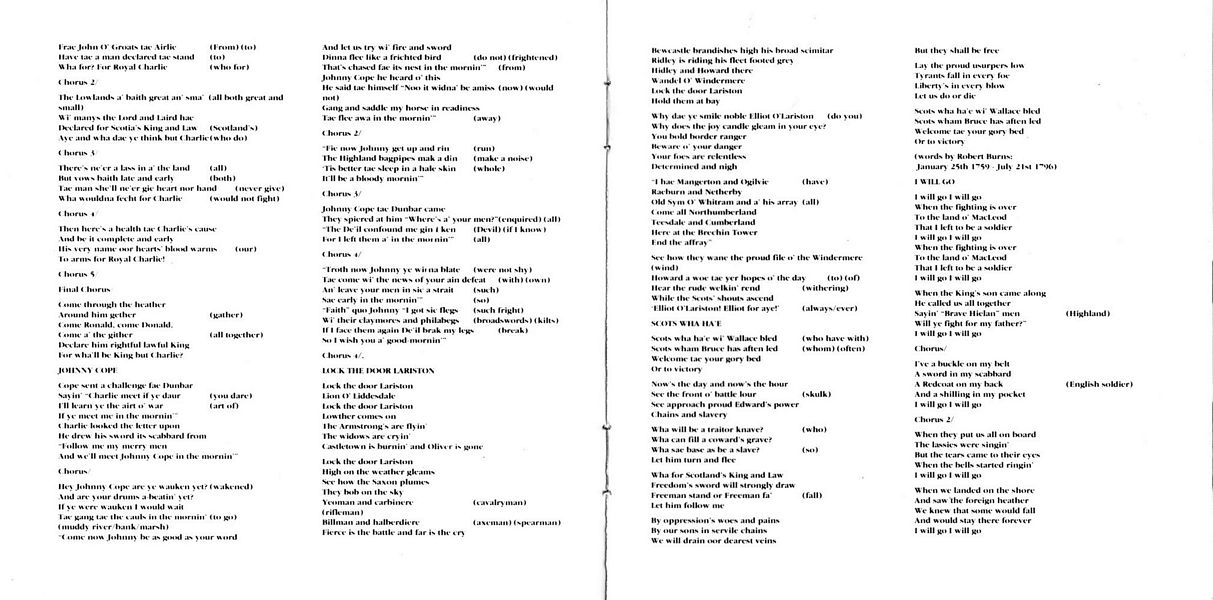
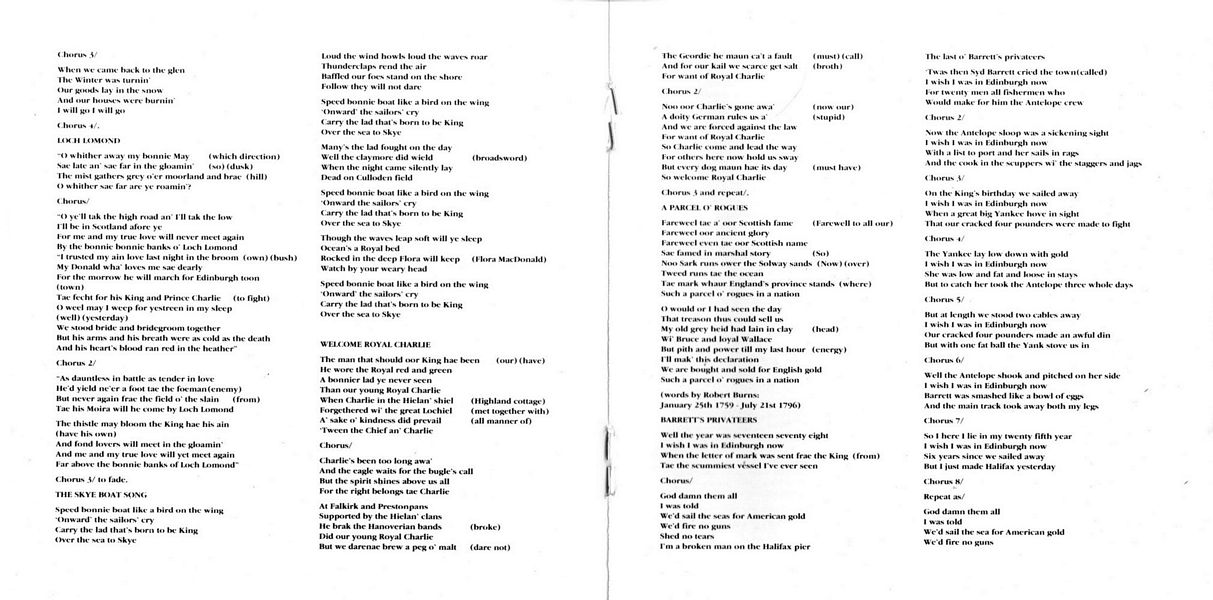 |
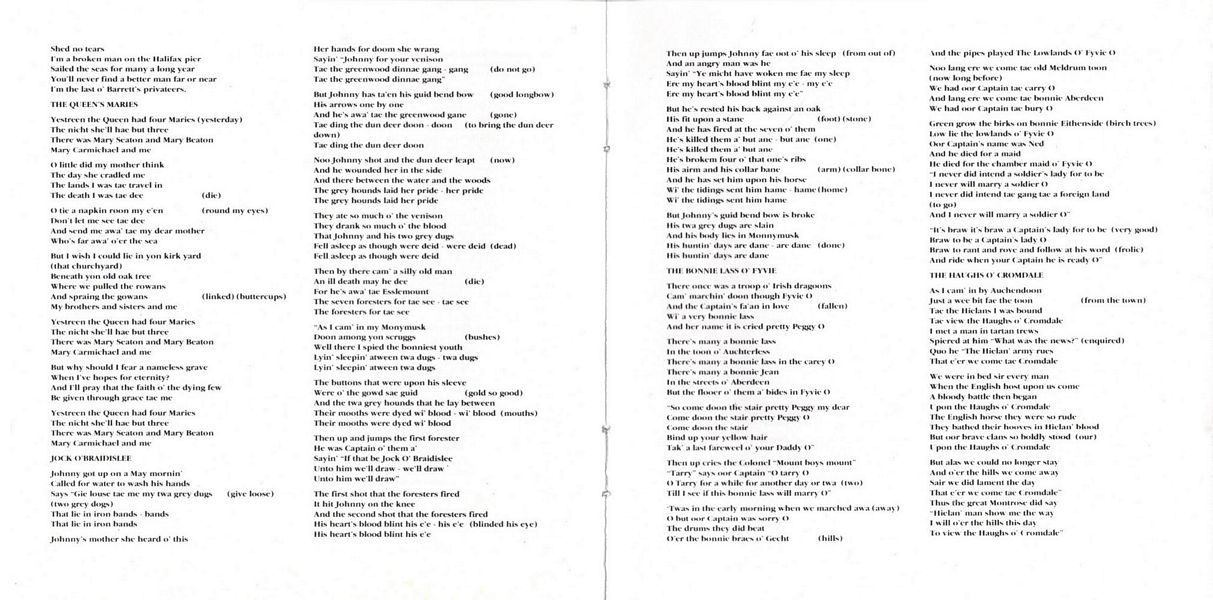
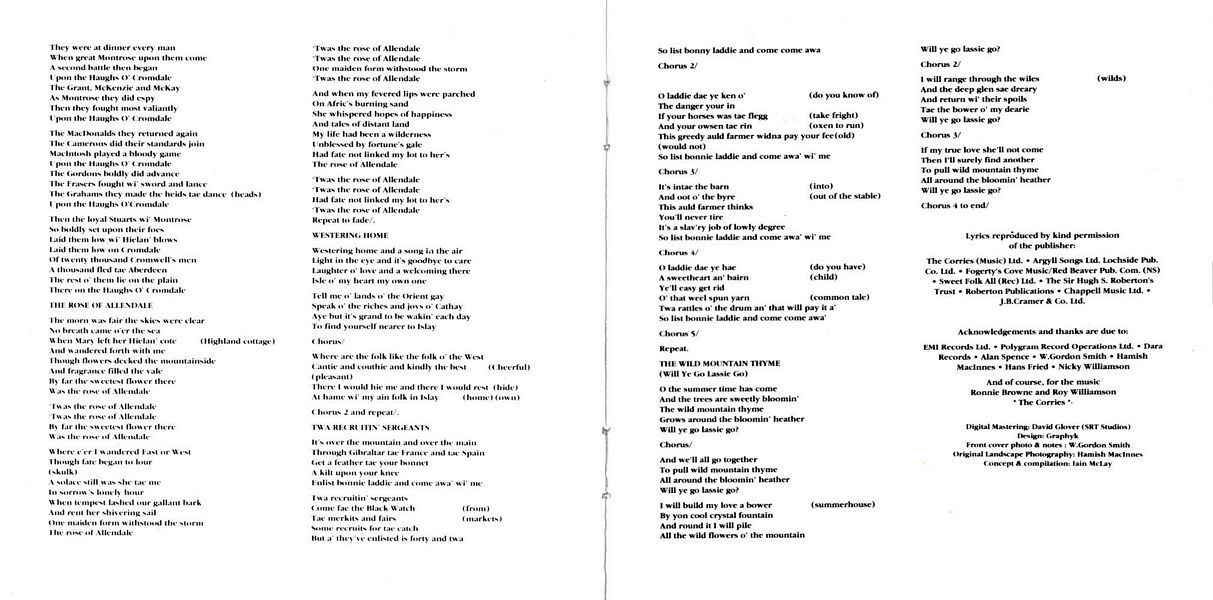 |
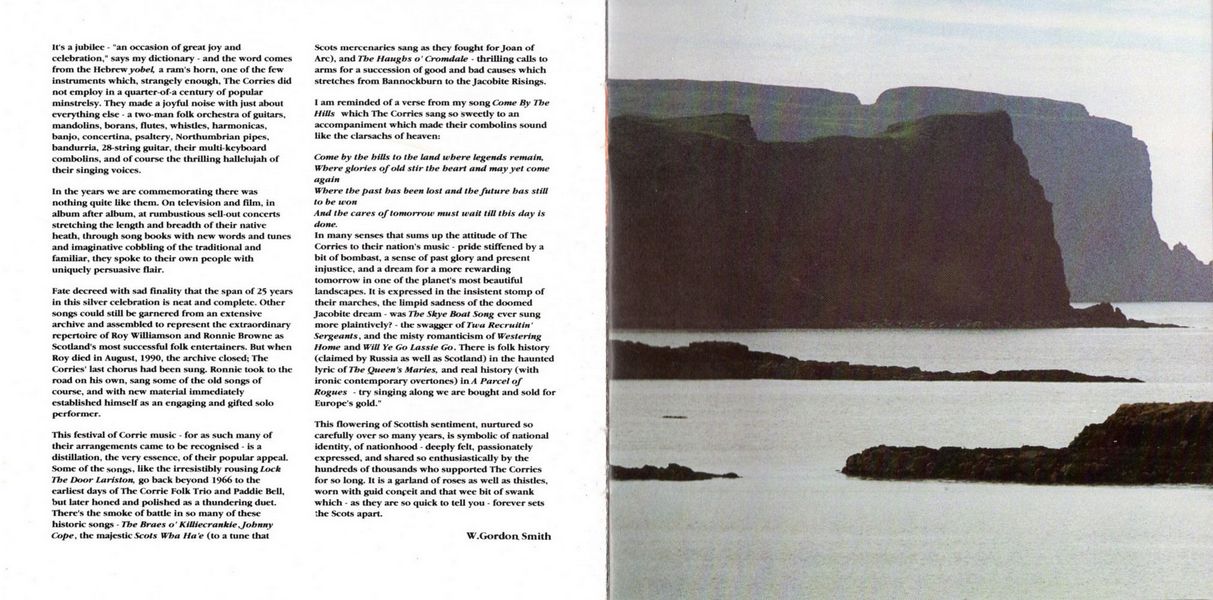
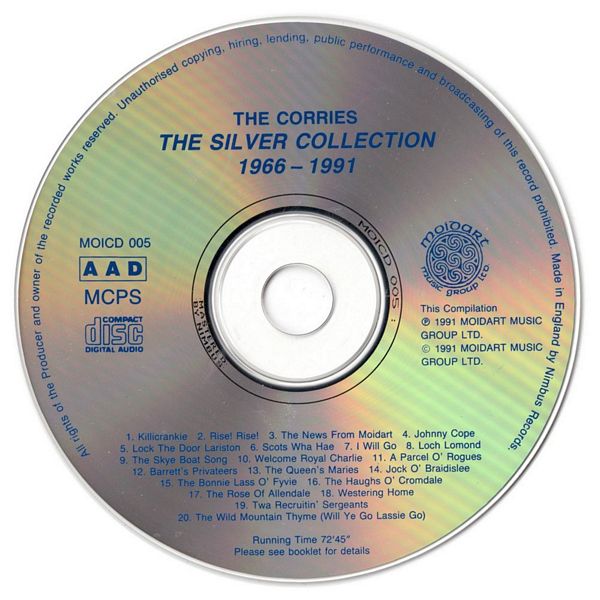 |
Sleeve Notes
This is Ronnie Browne welcoming you and yours to THE CORRIES SILVER COLLECTION. 1961 saw the birth of The Corrie Folk Trio & Paddie Bell, but, come 1965, Roy and I were left as a duo … THE CORRIES. Twenty five years then it has been of touring, concerts, making records and all of the other activities of The Corries, only made possible by folk like your goodselves.
Who would have thought it could happen? Certainly not Roy and myself back in those early days as young folk-singers wondering where the money for a new set of guitar strings was to come from.
I personally have far too many memories of people and places during those years to even begin talking about them here, but I shall say, on behalf of Roy and myself, a sincere thank you to everyone who supported us as a group throughout that time, we certainly appreciated it.
This album reflects, for the first time. The CORRIES complete recording career and although it has been some time coming, I trust you shall welcome its arrival.
Enough from me then … on with the music.
Ronnie Browne
November 1991
It's a jubilee — "an occasion of great joy and celebration," says my dictionary — and the word comes from the Hebrew yobel, a ram's horn, one of the few instruments which, strangely enough, The Corries did not employ in a quarter-of-a century of popular minstrelsy. They made a joyful noise with just about everything else — a two-man folk orchestra of guitars, mandolins, borans, flutes, whistles, harmonicas, banjo, concertina, psaltery, Northumbrian pipes, bandurria, 28-string guitar, their multi-keyboard combolins, and of course the thrilling hallelujah of their singing voices.
In the years we are commemorating there was nothing quite like them. On television and film, in album after album, at rumbustious sell-out concerts stretching the length and breadth of their native heath, through song books with new words and tunes and imaginative cobbling of the traditional and familiar, they spoke to their own people with uniquely persuasive flair.
Fate decreed with sad finality that the span of 25 years in this silver celebration is neat and complete. Other songs could still be garnered from an extensive archive and assembled to represent the extraordinary repertoire of Roy Williamson and Ronnie Browne as Scotland's most successful folk entertainers. But when Roy died in August 1990, the archive closed; The Corries' last chorus had been sung. Ronnie took to the road on his own, sang some of the old songs of course, and with new material immediately established himself as an engaging and gifted solo performer.
This festival of Corrie music — for as such many of their arrangements came to be recognised — is a distillation, the very essence, of their popular appeal. Some of the songs, like the irresistibly rousing Lock The Door Lariston, go back beyond 1966 to the earliest days of The Corrie Folk Trio and Paddie Bell, but later honed and polished as a thundering duet. There's the smoke of battle in so many of these historic songs — The Braes o' Killiecrankie, Johnny Cope, the majestic Scots Wha Ha'e (to a tune that Scots mercenaries sang as they fought for Joan of Arc), and The Haughs o' Cromdale — thrilling calls to arms for a succession of good and bad causes which stretches from Bannockburn to the Jacobite Risings.
I am reminded of a verse from my song Come By The Hills which The Corries sang so sweetly to an accompaniment which made their combolins sound like the clarsachs of heaven:
Come by the hills to the land where legends remain,
Where glories of old stir the heart and may yet come again
Where the past has been lost and the future has still to be won
And the cares of tomorrow must wait till this day is done.
In many senses that sums up the attitude of The Corries to their nation's music — pride stiffened by a bit of bombast, a sense of past glory and present injustice, and a dream for a more rewarding tomorrow in one of the planet's most beautiful landscapes. It is expressed in the insistent stomp of their marches, the limpid sadness of the doomed Jacobite dream — was The Skye Boat Song ever sung more plaintively? — the swagger of Twa Recruitin' Sergeants, and the misty romanticism of Westering Home and Will Ye Go Lassie Go. There is folk history (claimed by Russia as well as Scotland) in the haunted lyric of The Queen's Maries, and real history (with ironic contemporary overtones) in A Parcel of Rogues — try singing along, "we are bought and sold for Europe's gold."
This flowering of Scottish sentiment, nurtured so carefully over so many years, is symbolic of national identity, of nationhood — deeply felt, passionately expressed, and shared so enthusiastically by the hundreds of thousands who supported The Corries for so long. It is a garland of roses as well as thistles, worn with guid conceit and that wee bit of swank which — as they are so quick to tell you — forever sets the Scots apart.
W. Gordon Smith